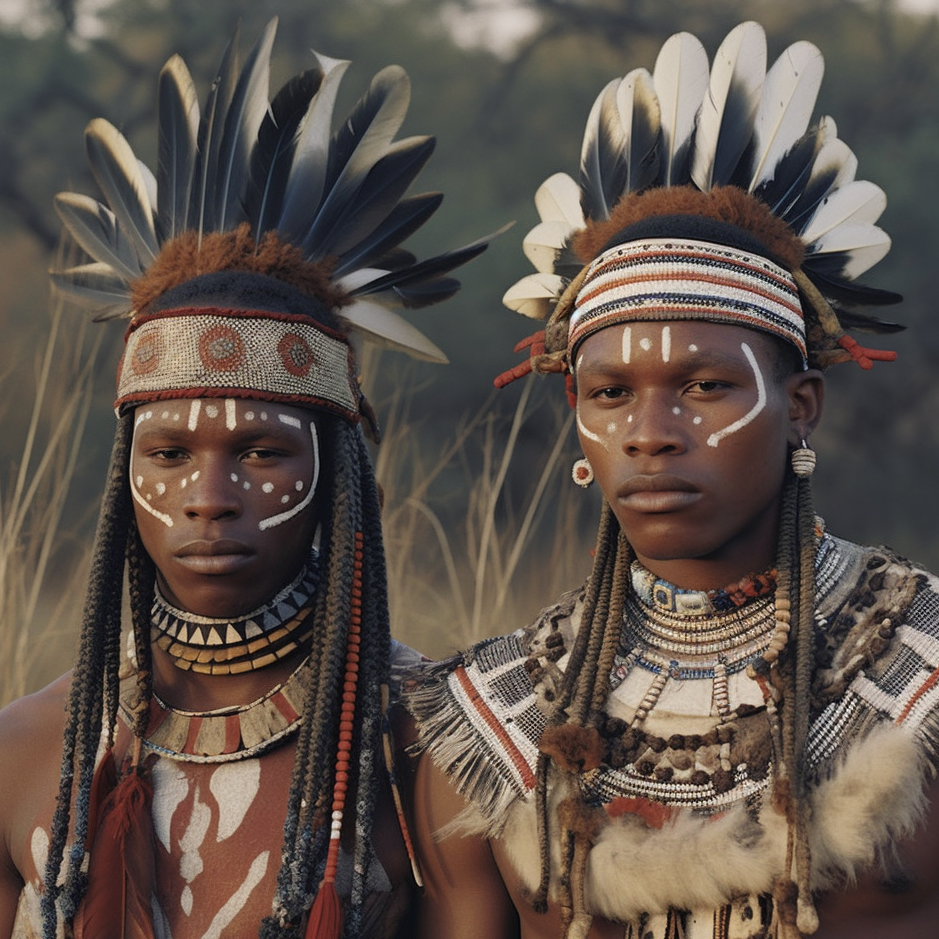SA
South Africa’s Forgotten Tribes: Discovering the Rich Heritage of Indigenous People
Uncover the rich heritage of South Africa's forgotten tribes and explore the fascinating world of its indigenous people.
Advertisement
South Africa is a country with a rich cultural diversity, but many of its indigenous tribes and cultures have been marginalized over the years.
However, there are still a number of vibrant and unique tribes that continue to thrive in various parts of the country, each with their own rich cultural traditions and histories.

How about we explore some of South Africa’s forgotten tribes and discover the richness of their cultural heritage?
We will learn about its history, traditions, and cultural practices in order to better understand the diversity and richness of South African culture.

The Dark Side of South African History: 6 Bone…
Uncover the chilling and lesser-known stories from South Africa's dark history with this 6 bone-chilling tales.
We will highlight the importance of these forgotten tribes to South African culture and how they continue to contribute to South Africa’s cultural diversity and heritage. Check it out!
Khoisan
This group includes several different sub-tribes, such as the San and the Nama. They are believed to be some of the earliest inhabitants of South Africa and are known for their click languages and hunter-gatherer lifestyles.
The Khoisan also has a rich cultural heritage that includes intricate beadwork, music, and dance. Their beadwork often incorporates natural materials such as ostrich eggshells and animal hide and is used to create intricate designs and patterns.
In recent years, there has been a renewed interest in Khoisan culture and heritage, as efforts are made to preserve and promote their unique traditions.
You will be redirected to another website
Griqua
The Griqua people are a community of people of mixed race who have a unique cultural heritage that blends indigenous Khoisan and European influences.
They originated in the early 18th century when Dutch colonizers and Khoisan people intermarried, creating a mixed-race community known as the Griqua.
The Griqua played an important role in South African history, particularly during the colonial period. They were often referred to as the “Coloured” people, a term which has since been reclaimed by some as a source of pride.
Many Griqua people were subjected to discrimination and marginalization due to their mixed-race status and were forced to live in segregated areas.
Today, the Griqua people continue to play an important role in South Africa’s cultural landscape, and their contributions to the country’s rich heritage cannot be overlooked.
VhaVenda
This tribe is located in the northern part of South Africa and has a long history of art and craftwork, including pottery and woodcarving. They also have a rich tradition of storytelling and oral history.
Tsonga
The Tsonga people are known for their music and dance, particularly the Xibelani dance which involves shaking and swaying of the hips. They also have a rich tradition of oral history and storytelling.
Khoi
Khoi, also known as the Khoikhoi, is another sub-group of the Khoisan people and is known for their unique cultural practices, including their use of medicinal plants and their traditional rainmaking ceremonies.
The Khoi people have a unique language and culture that is distinct from other indigenous groups in the region. They have a rich tradition of oral storytelling, and their music and dance are characterized by a deep connection to the natural world.
Pedi
The Pedi people have a rich cultural heritage that includes unique music and dance styles, as well as a tradition of craftwork, including pottery and basketry.
Historically, the Pedi people were known for their expertise in agriculture, particularly in growing sorghum and millet, which were important staple crops. They also had a strong tradition of cattle herding and played a significant role in the cattle trade with neighboring tribes.
Ndebele
The Ndebele people are known for their brightly colored beadwork and art, which is often used to decorate their homes and clothing. They also have a rich tradition of oral history and storytelling.
These are just a few of the many indigenous tribes of South Africa that have a rich cultural heritage and continue to contribute to the country’s diverse cultural landscape.
It is crucial to shed light on these forgotten tribes and give them the recognition they deserve. Their unique contributions to South Africa’s cultural tapestry have shaped the nation’s identity in profound ways.
By embracing their heritage, we can promote cultural diversity, foster respect, and celebrate the resilience and spirit of these indigenous communities.
About the author / Iana Power
Trending Topics

Boodle Payday Loans full review!
Boodle is an excellent lender if you want to borrow a payday loan and at the same time, begin to build a lasting relationship!
Keep Reading
Apply at Unilever – Payments of up to ₦3,855,264 yearly!
Applying for Unilever might be the lifetime opportunity for many people. If you are one them, make to check this article!
Keep Reading
Woolworths Personal Loans full review!
Woolworths is a respectable retail chain, and also has a very good financial institution as well! Check it out!
Keep ReadingYou may also like

Cheapest Places to Retire in the World
Sometimes we just want a cheap place to retire well. Here are some places where you can afford a comfortable retirement at low costs.
Keep Reading
Applying at Party City – $28,198 per year can be your salary!
If you want to learn more about the application process and some soft skills that you might want to have at Party City, this is the article!
Keep Reading
Publix Worker review – $34,000 annually as an average salary!
Publix is a company that offers very good benefits, especially if you are looking for entry-level positions. Check it out!
Keep Reading